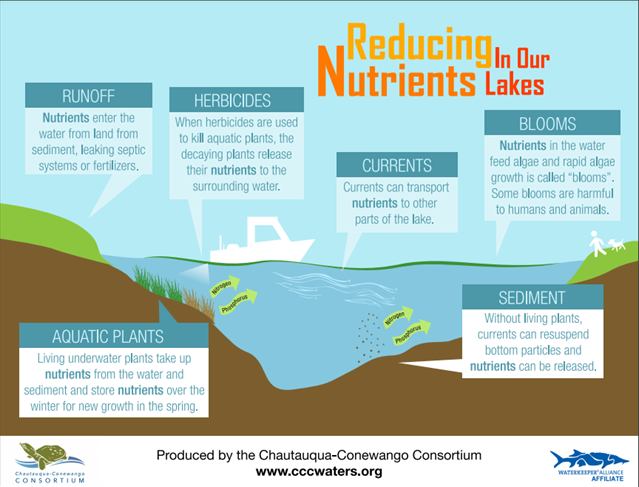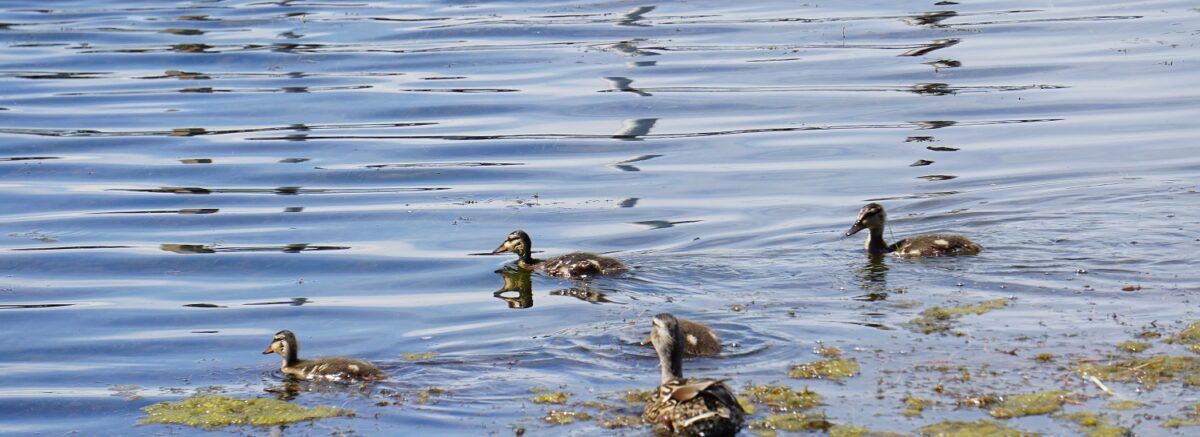Each of our regional lakes –Findley, Cassadaga, Bear, and Chautauqua — is part of a system of connected environments, often referred to as an ecosystem. Human activities within these ecosystems can have positive or negative impacts on their delicate balance.
Nutrients in lakes, such as Chautauqua, come from different sources including runoff from land, leaking septic systems, release from lake bottom sediments, and decay of aquatic plants. For a healthier lake ecosystem, the ultimate goal is to reduce nutrient loading to the lake. Too many nutrients and too few growing plants cause the lake to tip toward algal dominance.
Killing aquatic plants in a way that leaves the dead tissue in the lake creates an additional nutrient source. Nutrients feed algae. And blue-green algae (cyanobacteria) blooms are not healthy for lakes or people.
The lake is a system…it is all connected! When herbicides are used to kill aquatic vegetation, the decaying plants release nutrients, nitrogen, and phosphorus, into the water. This release creates extra, additional nutrients that would normally be held in the living plants for next year’s growth. With lake water moving due to wind-generated and other currents, nutrients can be transported to other parts of the lake. Nutrients – especially phosphorus – feed the algae causing rapid growth, known as blooms. Some of these blooms include harmful toxins that can affect dogs and humans.
Reduced nutrients and living plant growth are the foundations of a healthy lake. Reducing reliance on herbicides is one of the easier, cost-saving, and immediate steps we can take to improve lake health.
What we can do:
- Use alternate methods to reduce aquatic plants, such as aquatic insects and harvesting
- Maintain shoreline buffers and reduce reliance on lawn and garden fertilizers
- Use herbicides only for new invasive species as they are largely ineffective for long-established plants and are non-selective, killing native species along with invasives
- Appreciate living ecosystem conditions, a healthy lake needs living plants
Protect our valuable water ecosystems for future generations!
References for this article can found HERE.


